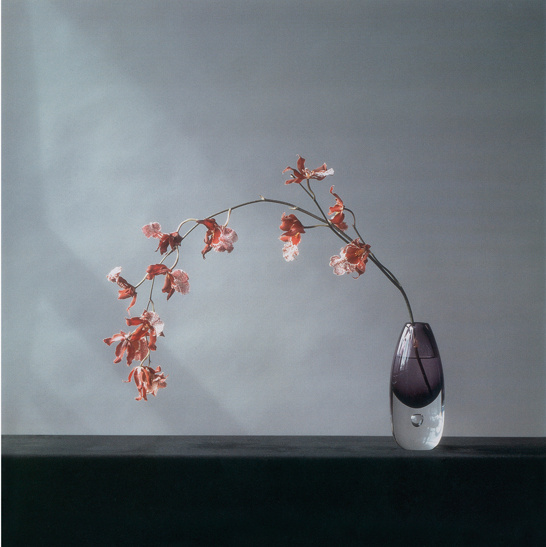Day Thirty Two — 17 March
Hear our voice, O Lord, according to your faithful love.
Lectionary readings
Robert Mapplethorpe, from 6 Flowers. 1983 The feast of life—not death In finding the table that truly is the Lord's (and therefore not ours, in any of our denominational guises) we will, says the Psalmist (34. 9-14), "depart from evil, and do good; seek peace, and pursue it." That is how we will know it is of God, and not merely a place of self-justification. But this is only possible if we are able to be transformed. And according to the Gospel we are transformed by becoming Christ's body, by being united with his flesh—which carries the ineradicable scars of crucifixion, but is also risen (glorified by the life-giving that is God's very self). Being transformed, says Jesus, isn't a matter of being clever enough to think ourselves into the right state. It happens in a much more ordinary way when we eat bread together in his presence—as a matter of habit, rather than when we choose. It involves sharing bread with friends, and especially enemies. And it means seeking Christ's presence in the most unlikely, awkward, broken people—such as those we find immediately around us, perhaps! This for me, as an Anglican, is what the whole ritual of Communion is about. Not mindless repetition, but an action through which the whole of the Gospel is made known, and I am located in God's story and united to others in Christ, continually and repeatedly. It is a way of "learning bodily" (not just in my head, where I spend too much of my time)—of practicing "Christly gestures" that become part of who I am when I am not at the table, as well as when I am. … [Continues tomorrow …] Simon Barrow. "Being Consumed Again by Love," in Fear or Freedom: Why a Warring Church Must Change. (London: Ekklesia, 2008), pp. 117-123. Kim André Arnesen: O Sacrum Convivium. Mogens Dahl Chamber at the Church of Holmen, Denmark.
This is the world premiere performance of a piece written especially for Mogens Dahl Chamber Choir. The text by Thomas Aquinas praises the institution of the supper sacrament as a sacred dinner banquet that "fills the mind with grace" and gives a foretaste of eternal delights. |
May God our Redeemer show us compassion and love. Amen.
